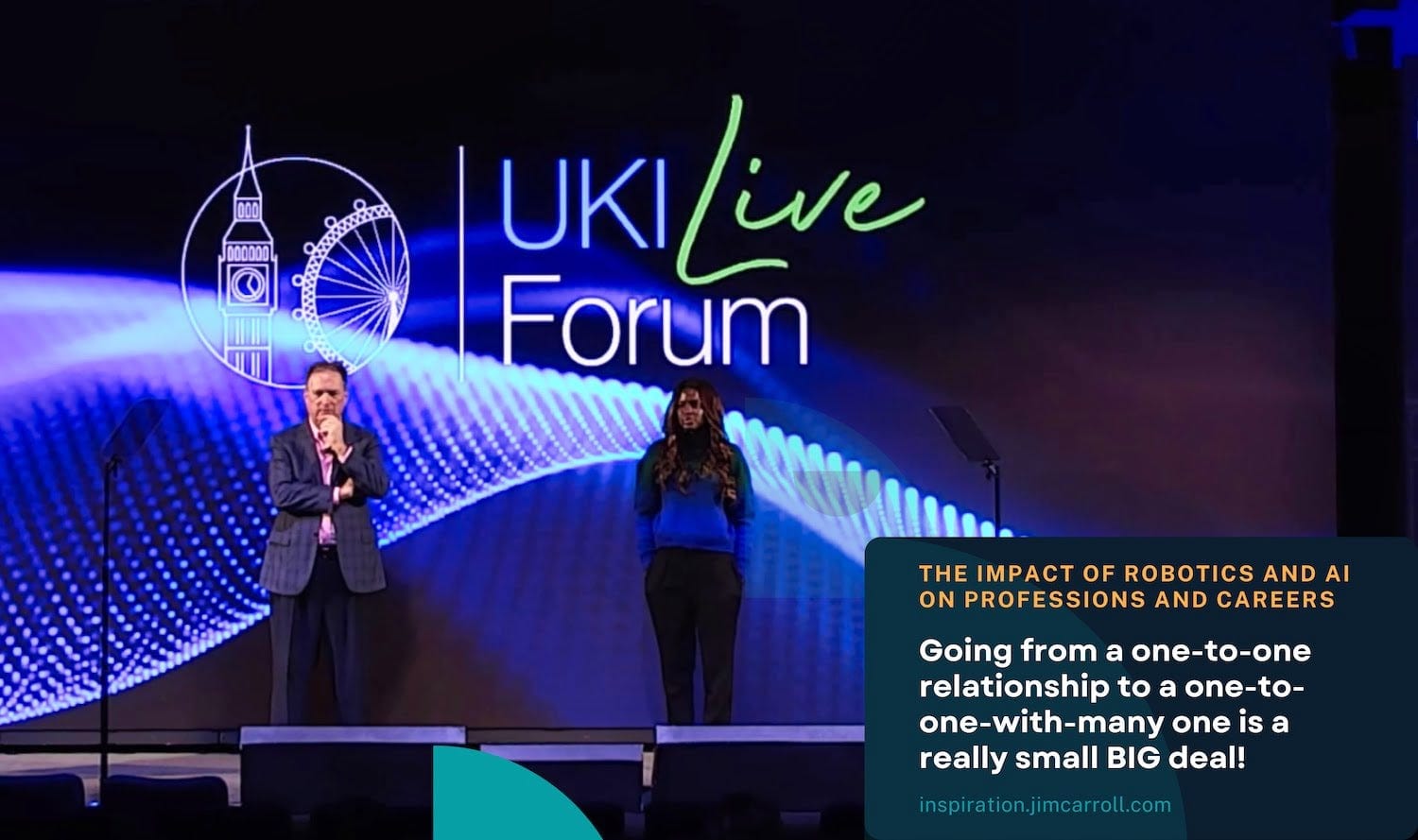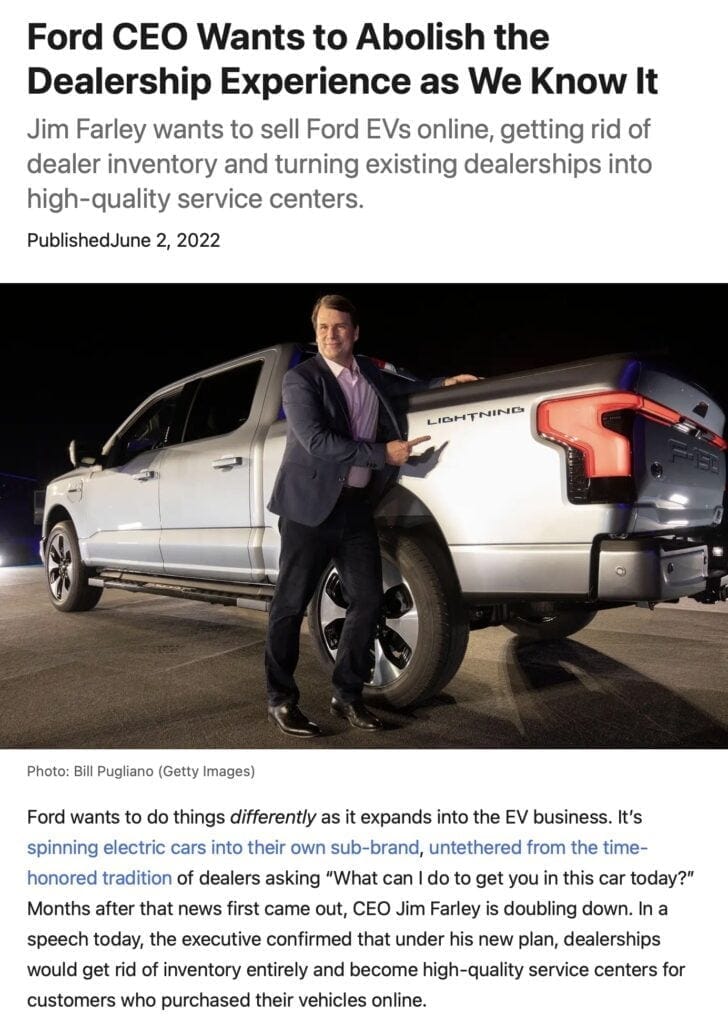I'm often asked about the impact of technologies like AI and robotics on careers going forward. You can best get a sense of my response and mindset by watching this video from an event in the UK:
I often say you'll define your future by your ability to redefine your reality. Here's the transcript of the Q&A, where I was talking about the potential for robotic dentistry driven by AI.
It's interesting you talk about, you know, robotic dentistry. How is that going to square out with the emotional aspect of the dental patient relationship?
You know, I would put that in the context of the visit with my family doctor. My my family doctor relationship changed 25 years ago. I was in the home office one morning and I'm feeling my mouth little funny as I'm doing a radio interview and it got worse and worse and, "My God, I'm having a stroke. I'm only 30 something,"
And I went to a walk in clinic and they said you have Bell's palsy, and they said you need to go see your family physician. So I called him, got an appointment six hours later. What do you think? It's 1996. What do you think I did the next six hours? Early morning, Doctor Google on Bell's palsy.
So by the time I went in to see him, he said "you've got Bell's palsy." I said "I know." He said "I'm going to put you on Prednisone steroid treatment." And I said, "Well, I don't know, you know, a study out of the University of Southern California, 297 out of 300 patients, you know, it was found that it was not a......"
What has happened here, good or bad: Our knowledge empowerment or disempowerment as it were, has changed the nature of our relationship between doctor and people. And when I go in with my doctor on Friday, I mean I've got more statistics on glucose and blood pressure and heart rate and aerobics and everything on here. It's changed the nature of the relationship. I don't think that relationship will go away. The relationship has evolved.
And I think as we get into more of a virtual world, more of a robotic world, more of a world driven by crazy science fiction like trends, I don't think the interpersonal relationship disappears. I think it evolves, it changes, it transforms.
The impact of AI, robotics, and technology? It's not just that your future changes - it's that the essence of your relationships changes forever! Relationships don't get replaced, but they fundamentally change.
We already know that mass information and misinformation at scale have forever changed doctor-patient relationships, both good and bad. The same thing is happening with every other industry and profession, from insurance brokers to architects; auto dealers to customer service representatives. People empower themselves with information - and whether it is real or not, they use that in their relationships with those they interact with throughout their lives. It makes things far more challenging; shifts the balance of power; and in essence, changes the relationship forever.
Virtual technologies involving robotics and the impact of AI are only going to accelerate this trend; it's almost as if intelligent third parties are entering into the relationship, with an AI and virtual assistant now becoming a part of your overall doctor-patient or doctor-dentist relationship. That was the first version of today's quote, which I abandoned because I just thought it was too difficult to try to explain myself!

Going from a one-to-one relationship with your doctor to a one-to-one-with-many (the 'many' being AI), is a really small BIG deal.
The art of change is working with it, accepting it, molding it, and shaping it. I wrote this issue into trend #3 of my 23 Trends for 2023 series: Inevitable Inevitability! It's worth a. read.
This talk took a look at the key disruptive trends sweeping the world of property and casualty, as well as life insurance. The theme tied into the same type of theme for the Purina dealers – when your business model is disrupted and some consumers are choosing to go ahead without you, you only survive by focusing on your role and the value of the unique services you provide to ensure that others don’t.
For as long as there has been business model disruption, there has been the idea of 'disintermediation.' We wrote that into our book 22 years ago:
Businesses Will Compete With Their Channel Partners
With online retail sales in North America expected to top $75 billion by the year 2003, no one wants to be left behind. And no group is more eager to cash in on the growth in online shopping than manufacturers, who have traditionally had to rely on retail partners to sell their products to consumers.
Lured by the ease of online selling and the prospect of higher profit margins, many manufacturers are bypassing their retail channel partners and are choosing to sell directly to consumers over the Web.
....
Such efforts often cause rather tumultuous relationships within an industry, as established dealers struggle to deal with the situation. A good example of an industry that faces the biggest challenge in this regard is the auto-industry. Ford, GM, Chrysler and every other manufacturer knows that they can easily sell cars on their own Web sites. They are aware that there are probably sufficient numbers of consumers to make such an effort very worthwhile.
Yet they also know that undertaking this type of activity is going to cause some rather extreme disruption with the auto dealers who represent them. Hence, they are moving carefully to assess how to best go about doing it.
It isn’t an easy issue to deal with, given that a business can damage itself if it moves too quickly to compete against its dealers. Take the insurance industry: there are many insurance agents and brokers who represent a variety of insurance companies. They are in a situation in which they can pick and choose which companies they will represent. CEOs of insurance companies are rightfully worried that if they start selling insurance through the Internet, they will upset a number of their representative agents, who might then choose to place their policies elsewhere. A company can decide to start selling online, and watch its traditional business evaporate almost overnight.
Hence, suppliers of product in every industry are faced with a conundrum : they must get involved with e-commerce in order to deal with empowered consumers. Yet, they must do so in a way that doesn’t cause upset and upheaval within their current distribution base.
Everywhere you turn, you can see situations in which suppliers or manufacturers of products are wrestling with the issue. Some have bit the bullet and have clearly chosen to compete directly with their channel partners
Twenty-two years in, it's pretty clear that the automotive industry is still struggling with this issue. And yet, it seems pretty clear that the CEO of Ford, Jim Farley, recognizes that the time is finally ripe for this type of change.

Ford is doing several things: requiring auto dealers to invest in adequate electric charging infrastructure, committing to significant training in this new automotive and truck platform, and going forward with a no-haggling set price for electric vehicles. Not surprisingly, there is tremendous pushback by various automotive dealer groups, and political pressure by various state legislative bodies brought about as a result of pressure by those groups.
And yet, certain things are certain, and it seems pretty clear that he (and other automotive manufacturers) recognize the inevitability of where the automotive industry is headed.
Centuries-old relationships are changing.
Relationships matter.
So too does your ability to accept how they are changing.
Futurist Jim Carroll wrote the story of his 1996 visit with his doctor into a book a year later. Good Health Online, now long out of print, defined most of the medical and healthcare industry changes that would occur through the next 25 years, including the virtualization of healthcare that happened through the global pandemic.
Thank you for reading Jim Carroll's Daily Inspiration. This post is public so feel free to share it.

